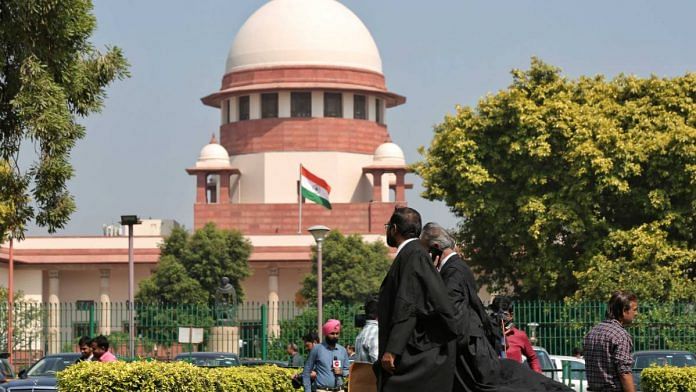New Delhi: Allaying the apprehension raised by an intervenor in the Article 370 case, the Centre Wednesday asserted it had no intention to touch the special provisions applicable to the North-East under the Constitution.
Solicitor General Tushar Mehta made the submission in response to advocate Manish Tewari’s “apprehensions” over the possibility of Centre abrogating the special provisions on North-East under Article 371 in the same manner, as it did with Article 370 that gave special status to the erstwhile state of Jammu and Kashmir.
Tewari placed his contention when the Chief Justice of India (CJI) D.Y. Chandrachud-led Constitution bench was hearing a batch of petitions raising a challenge to Article 370’s abrogation and subsequent bifurcation of J&K into two Union Territories — J&K and Ladakh. The counsel appeared for a former minister from Arunachal Pradesh.
Interjecting Tewari, Mehta said: “I have instructions to say this. We must understand the difference between temporary provision, which is Article 370, and special provisions with regards to the North-East. The Central Government has no intention to touch any part which gives special provisions to the North-East and other regions.”
The solicitor general asserted Tewari’s statement has a “potential of mischief,” adding: “There is no apprehension and there is no need to create apprehension.”
Taking note of Mehta’s statement, the top court disposed of the application filed by Tewari’s client, after observing that the reference to the Constitution Bench is confined to Article 370.
There is no “commonality” of interest between the issues sought to be addressed by the former minister of Arunachal Pradesh and issues raised in the reference, it added.
“The applicant urged that apart from the provisions contained in part 21 of the Constitution pertaining to the state of J&K. there are special provisions governing the North-East in the same part,” the court noted in its order.
“Since it has been submitted (by Tewari’s client) that the interpretation should be placed by this court on Article 370 could possibly impact the other provisions, the solicitor general, on specific instructions, has said that Union of India has no intention to touch or effect any of the special provision applicable to the North-East or any other part of India,” the order said.
The bench also noted that Mehta’s statement, on behalf of the Centre, would allay any apprehension in that regard.
In his submission, Tewari said that though the issue with regard to Article 371 is not before the court, however, the underlying principle of autonomy in the said provision and Article 370 is more or less the same.
“Therefore, what you hold in this matter, either way, will have implications on Article 371,” Tewari contended.
“The Constitution of India, in addition to being a political legal compact, also served as a national security instrumentality in terms of unifying the periphery of India to the hinterland. This is because national security is not merely the use of the hard power of the state.”
Under the British regime, he underscored, the periphery of India was ruled through a process of treaties. Independent India, however, decided to manage its periphery through constitutional guarantee. This is because while the British were managing an empire, independent India was building a republic, he told the court.
Even a slight apprehension in the periphery of India can have serious implications and “you are currently dealing with one such situation in Manipur”, Tewari submitted.
It was at this point that Mehta intervened to place the Centre’s stand on Article 371. He asked the bench to confine the hearing to Article 370 — which is a temporary provision for J&K.
“So, there is no apprehension and let us not try to create that apprehension. I am putting that apprehension at rest,” Mehta said.
When Tewari clarified that his arguments did not refer to the current government, the bench retorted: “Why should we deal with anything in anticipation or apprehension. We are dealing with a specific provision, Article 370, we don’t have to expand the ambit on what the impact of our interpretation would have on the other provisions.”
The bench pointed to the difference between Article 370 and 371, saying the former is said to be temporary in nature, which has been contested by the petitioner who argued on different aspects while interpreting it as permanent.
The CJI then said that though the broader impact of the abrogation of a state to the UT is a concern of the court, it will not be correct to raise a specific apprehension vis-à-vis the North-East.
(Edited by Tony Rai)
Also Read: Article 370 hearing: No power in Constitution that lets Centre extinguish a state, Sibal tells SC



